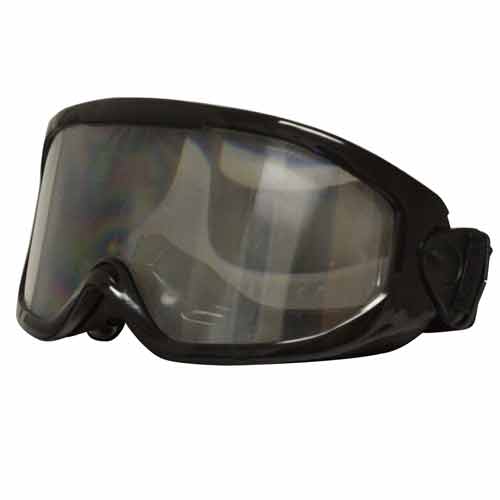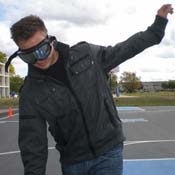
Vision Impairment Goggles – the Next Big Thing in Substance Abuse and Sleep Deprivation Training
By: Nicola Grun
Alcohol, Drug and Sleep Deprivation Goggles are among the best tools available to enhance substance abuse and safety training. The vision distorting goggles simulate the visual and cognitive effects of intoxication from alcohol, drugs or fatigue.
Impairment Goggles use specially selected vision distorting lenses to simulate the effects of BAC (Breath Alcohol Content) levels ranging from 0.04 BAC all the way up to 0.35 BAC. The goggles simulate many of the effects of intoxication including visual distortion, double vision, reduced peripheral vision and the alteration of depth and distance perception. Cognitive distortions include reduced alertness, delayed reaction time, confusion, and lack of muscle coordination.
Lifeloc offers five BAC configurations, several Drug configurations, including Marijuana, as well as a Sleep Deprivation version.

Alcohol Impairment Goggles Enhance Supervisor Drug and Alcohol Training
Mary Hines of SimplePath Drug Laboratory in Texas first used Drunk Goggles as a training aid in her "Reasonable Suspicion" supervisor classes. She was looking for a dramatic way to engage a class of senior aeronautics engineers. She asked their supervisor to wear the goggles and then attempt to shake hands with each of his direct reports. He failed eight out of eight tries. Mary added, "Wearing the goggles really gives those of us who have never had the experience of "walking the line" at a roadside sobriety check an appreciation of how difficult it can be while impaired."
At the 2013 Substance Abuse Program Administrators Association (SAPAA) conference Mary designed a simple hopscotch game to demonstrate the lack of motor control and coordination caused by impairment. Participants tried the game with and without the goggles. None of the participants wearing goggles could land in the squares.
Edin Memic of the Regional Transportation District of Denver also uses impairment goggles for Reasonable Suspicion Drug and Alcohol training. The district mandates zero tolerance. Even a BAC of 0.02 is a breach of their safety rules. Edin, who uses the BAC Goggles in his classes, commented that the first reaction he often gets is, "This isn’t what I see when I’m drunk." Edin explains that the goggles mimic the brain’s distorted perception of reality and impaired vision when under the influence of alcohol. "The process is more about what you feel," he says. Edin has employees toss a spongy object to each other and into a trash can to illustrate his point. Not only does he get his message across but everyone has a good laugh at the same time.
Sleep Deprivation Goggles Give Real-World Lessons
Sleep Deprivation Goggles can be particularly useful during Fitness for Duty training. Even modest sleep deprivation can reduce employee performance to an equivalent BAC level of 0.05%. After being awake for 17–19 hours, performance levels are reduced enough to be considered incompatible with safe driving in many countries.1 "I’m training supervisors to detect how someone who is sleep deprived might act," says Mary Hines. "The effects of sleep deprivation can be just as pronounced as drug and alcohol impairment but without the goggles to demonstrate it’s sometimes difficult to convince the class."
Said Jarrett Hawkins, Regulatory Affairs Specialist for Shell Global, "The goggles were out of the norm and engaged employees in conversation." Jarrett tasked teams of 15 people with completing an obstacle course while wearing the Sleep Deprivation and BAC Goggles during the corporation’s annual Safety Day. The event educates office workers and offshore employees about workplace safety. Jarrett says that even office workers can learn about the effects of sleep deprivation due to work and personal commitments.
Impairment Goggles
Educational institutions have positive experiences using the Drunk Goggles to educate teens about substance abuse. Common uses for the goggles include having students walk a straight line or through plastic cones. Students in the Nursing and Personal Support Worker programs at Fleming College in Canada wear the Drunk Goggles in their training for the treatment of Sensory and Neurological Disorders. "The goggles provide students with a better understanding of visual disturbances," says Gwen Parkes, Nursing and Applied Learning Technologist for the college.

For more information about Lifeloc’s workplace training and breath alcohol testing products please email sales@lifeloc.com or call 303.431.9500.
References
1. https://www.ncbi.nlm.nih.gov/pmc/articles/PMC1739867/pdf/v057p00649.pdf


